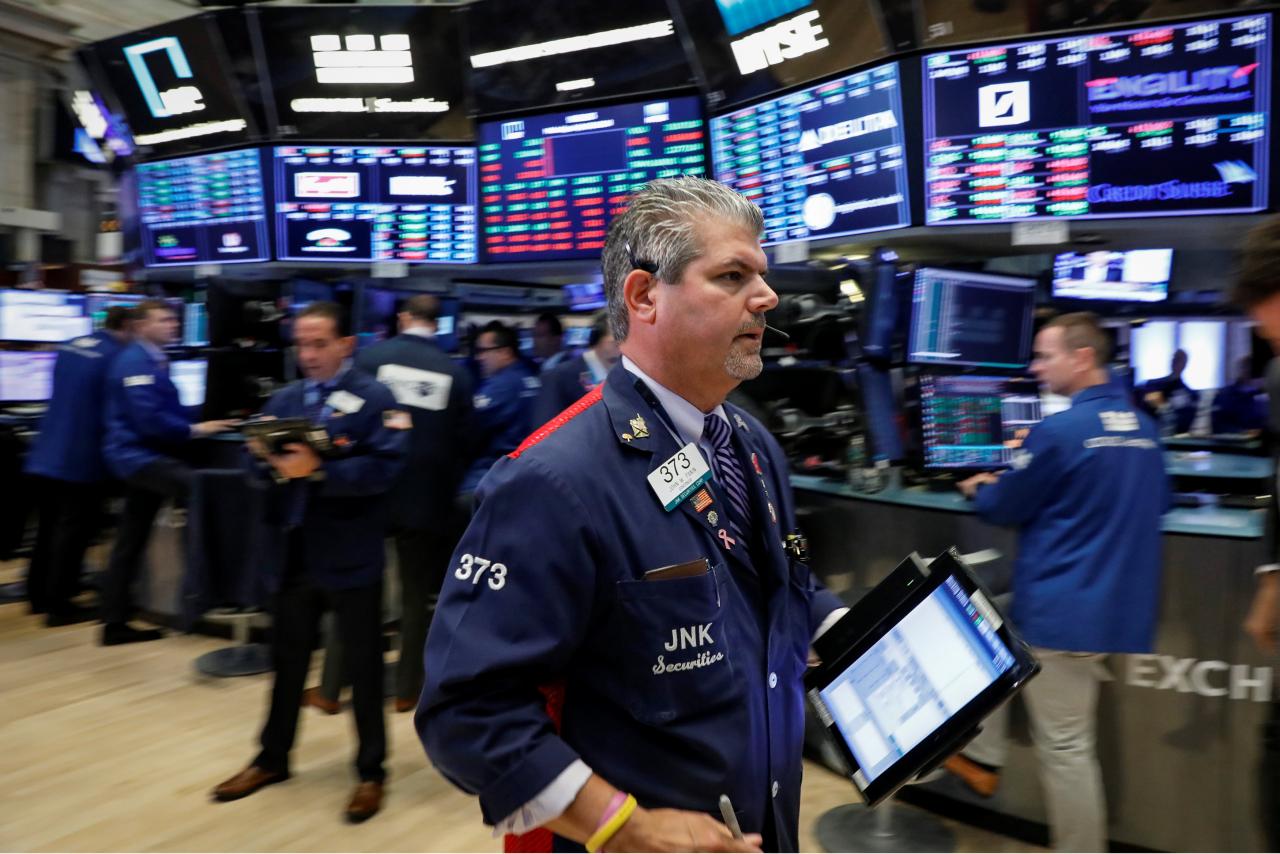Upbeat earnings lift stocks as trade fears cap gains and pressure dollar

NEW YORK (Reuters) - Stocks around the world advanced on strong earnings, with consumer staples results boosting Wall Street, though a trade spat between the United States and China along with weaker-than-expected US jobs numbers capped gains and weighed on the dollar.
US job growth slowed more than expected in July as employment in transportation and utilities fell, but analysts said the numbers didn’t change their expectations for a September interest rate hike.
“With wages and salaries up 2.7 percent, which is consistent with the 2.9 percent annual increase we saw for private sector workers in the June employment cost index report released earlier this week, a third rate hike in September is all but certain,” said Heidi Learner, chief economist at Savills Studley in New York.
Market participants were still focussed on an escalating trade dispute between the United States and China, which proposed new tariffs on $60 billion worth of US goods.
By the close, the Dow Jones Industrial Average has risen 136.42 points, or 0.54 percent, to 25,462.58, the S&P 500 gained 13.13 points, or 0.46 percent, to 2,840.35 and the Nasdaq Composite added 9.33 points, or 0.12 percent, to 7,812.02.
The S&P consumer staples sector .SPLRCS rose 1.2 percent. Its advance was led by Kraft Heinz , up 8.6 percent after the packaged foods company topped quarterly profit and revenue estimates.
For the week, the S&P 500 and Nasdaq posted gains, while the Dow was roughly flat.
MSCI's gauge of stocks across the globe .MIWD00000PUS gained 0.35 percent, while the pan-European FTSEurofirst 300 index rose 0.67 percent.
According to Bespoke Investment Group, mentions of tariffs in S&P 500 company earnings reports for the second quarter have more than doubled from the first quarter of this year.
Following news of China’s retaliatory tariffs and the US jobs data, yields on 7-year US Treasury notes led a fall in US government bond yields across maturities.
Italy’s bonds had a volatile day, with yields soaring to eight-week highs early in the day over political tensions, then falling back by the close.
Meanwhile, the Turkish lira hit a record low of 5.1125 against the US dollar after US sanctions on two Turkish ministers, in a dispute over the trial of a US pastor accused of backing terrorism in Turkey.
Friday’s 0.2 percent decline was part of a more than 4 percent slide this week that took the year to date devaluation of the currency to over 25 percent year-to-date versus the greenback.
Win Thin, global head of Emerging Market Currency Strategy at Brown Brothers Harriman in New York, said the Turkish central bank would need to send a strong message to support the lira in the form of a rate hike of over 700 basis points to 25 percent.
“The longer they wait to respond the harder it is,” Thin said.
The US dollar slipped against the yuan after the Chinese central bank raised the forward reserve requirement for foreign exchange in a bid to stabilise its currency. The dollar was 0.52 percent lower against the offshore yuan .
“Traders playing chicken against the People’s Bank of China got hit by a truck this morning,” said Karl Schamotta, a strategist at Cambridge Global Payments in Toronto currency.
The dollar index .DXY, which measures the greenback against a basket of six other currencies, was flat on the day at 95.148, after dipping as low as 94.98. The index was up 0.5 percent for the week.
Gold rallied 1 percent, after falling to the lowest in nearly 17 months, when the US jobs data pushed the dollar lower and Chinese currency lifted.
Oil prices edged lower after Thursday’s rally, which was driven by an industry report suggesting US crude stockpiles would soon decline after a surprise rise in the latest week.
US crude oil futures CLc1 settled at $68.49 a barrel, down 0.68 percent. Brent crude futures LCOc1 settled at $73.21, down 0.33 percent.







